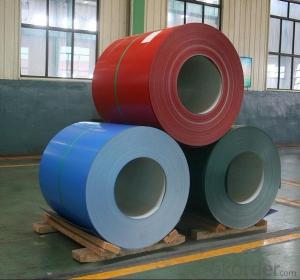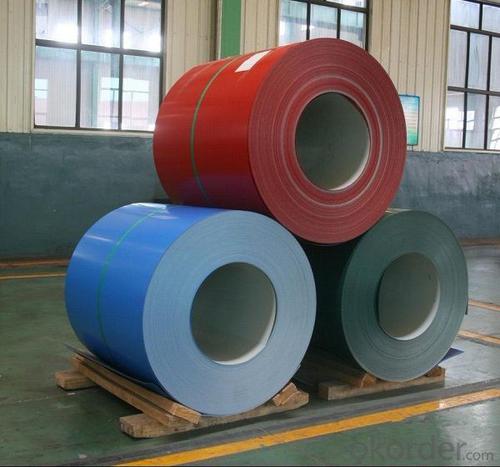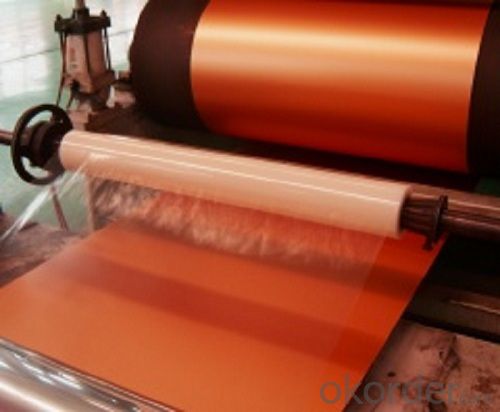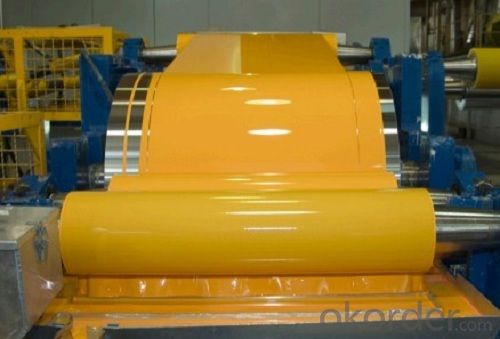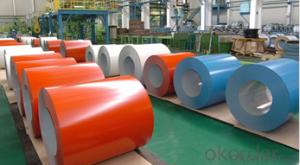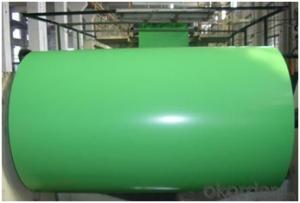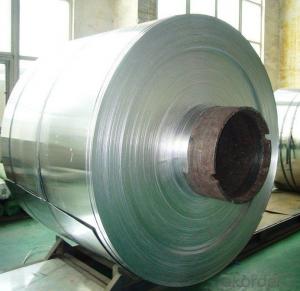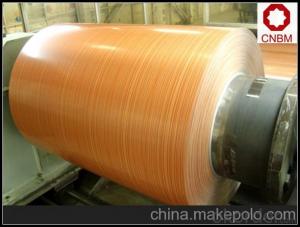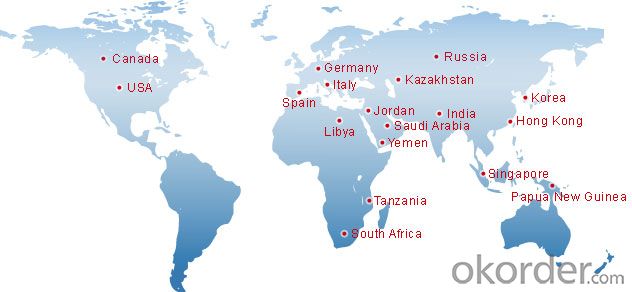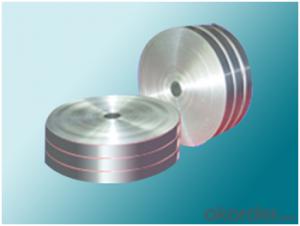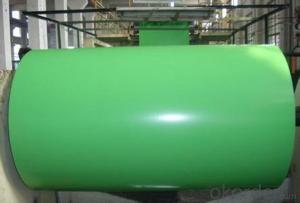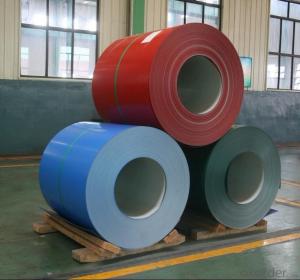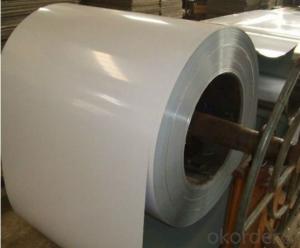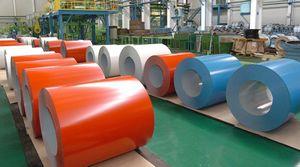Pvdf Painted Aluminum Coil for Decoration
- Loading Port:
- Shanghai
- Payment Terms:
- TT OR LC
- Min Order Qty:
- 2.5
- Supply Capability:
- 5000 m.t./month
OKorder Service Pledge
OKorder Financial Service
You Might Also Like
Specification
Color Coated Aluminum Coil for Decoration
l Product Specification:
| Product | Color Coated Aluminum Coil for Decoration |
| Thickness | 0.1mm-10mm |
| Width | 300mm-1900mm |
| Aluminum No | 1050,1060,1070,1090,1100 |
| Temper | O, H12, H14, H16, H18, H112 |
| Packing | Export standard wooden pallets (as per requirements) |
| Payment Terms | 30% T/T in advance as deposit, 70% balance against the B/L copy or 100% irrevocable L/C at sight |
| Minimum Order Quanlity | 2.5 ton pre size |
| Delivery time | 25-30 days after receiving L/C or deposit |
| Loading Port | Shanghai |
Remark | Specific requirement of alloy grade,temper or specification can be discussed at your request |
l Packaging & Delivery
Packaging detail: Standard seaworthy exporting carton, Wooden pallets, waterproof paper and plastic coverage or as customer's requirements
Delivery detail: about 25 days from received oiginal L/C or advance payment
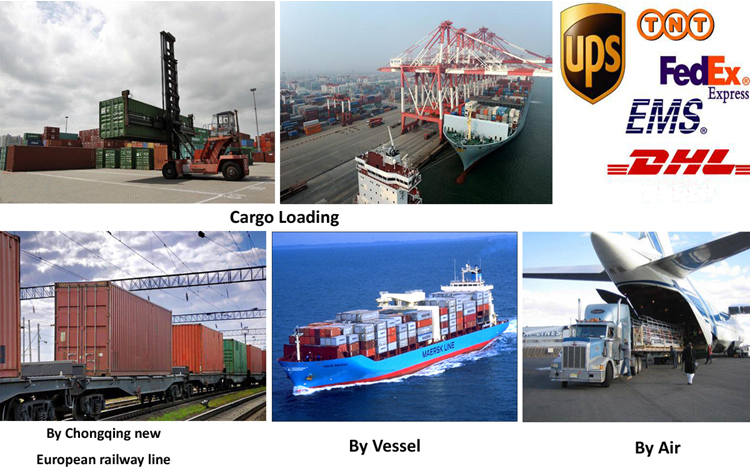
l Company Profile
CNBM International Corporation, China National Building Materials (Group) Corporation, is one of the largest companies in China building material & equipment industry, with 42,800 employees and sales in 2005 of US Dollar 4.395 billion. In 2006, China National Building Material Company Limited was listed on Hong Kong Stock Market with the stock code as 3323. |
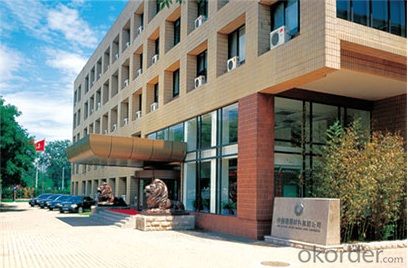
l CNBM World Wide
l Product Images
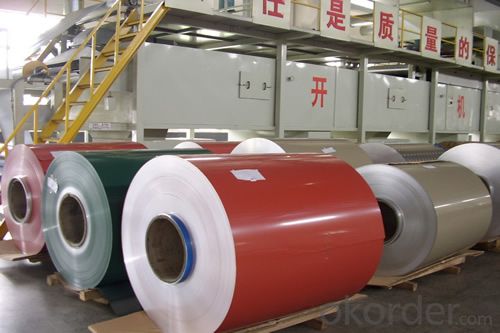
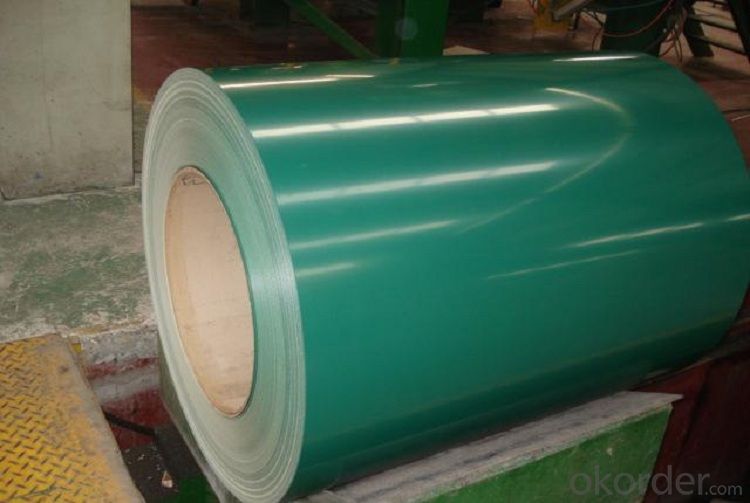
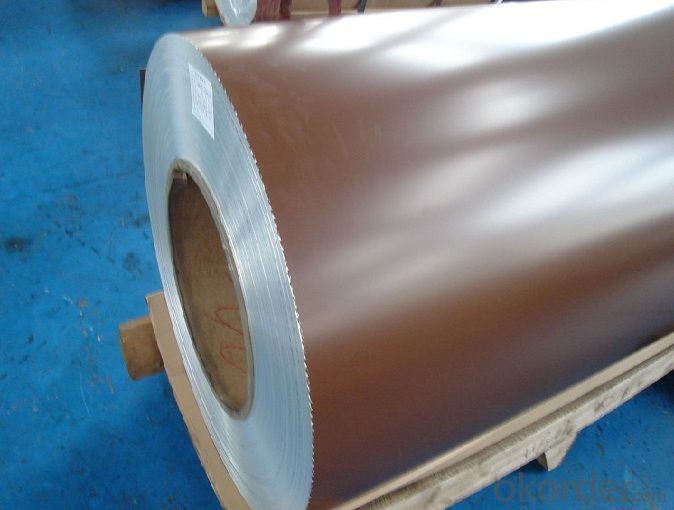
l Certificates
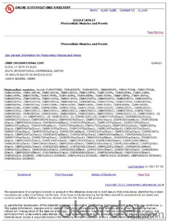
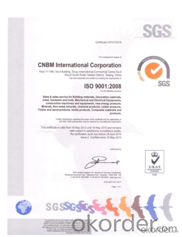
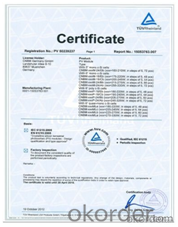
l FAQ
Q: Do you provide free samples?
A: Yes, free samples will be sent to you on freight at destination.
Q: Can I get your latest products catalogue?
A: Yes, it will be sent to you in no time.
Q: What is the MOQ?
A: 2.5 tons
Q: What are your payment terms?
A: We accept L/C, T/T.
- Q: Are aluminum coils suitable for architectural facades?
- Yes, aluminum coils are suitable for architectural facades. Aluminum is a popular choice for architectural facades due to its numerous advantages. Firstly, aluminum is lightweight, which makes it easier to handle and install compared to other materials. This is especially beneficial for high-rise buildings or complex architectural designs. Secondly, aluminum is highly durable and corrosion-resistant. It is naturally resistant to rust and does not require any additional coatings or treatments. This makes aluminum coils suitable for long-term use in various weather conditions, including harsh climates or coastal areas where corrosion is a concern. Furthermore, aluminum coils offer versatility in terms of design and customization. They can be easily formed into different shapes, sizes, and profiles, allowing architects and designers to create unique facades that meet their specific requirements. Aluminum can also be painted or coated in different colors and finishes to achieve the desired aesthetic appeal. In addition to its functional and aesthetic advantages, aluminum is also an environmentally friendly choice. It is a recyclable material, meaning that it can be reused indefinitely without losing its properties. This makes aluminum coils a sustainable option for architectural facades, aligning with the growing focus on green building practices. Overall, aluminum coils are a suitable choice for architectural facades due to their lightweight nature, durability, versatility, and sustainability. They offer a wide range of design possibilities while ensuring long-term performance and low maintenance requirements.
- Q: ok-so lately I've noticed that everytime i wrap food in aluminum foil it starts to eat tiny holes in it! so far it has happened when I put it on chicken breasts and froze them--over a warm eggplant parm that i put in the fridge and now, today on coleslaw--which was never hot! what the heck is going on? I've never seen this before! any ideas? it is a name brand foil too...tx!
- I have noticed that myself and thought it was just the new method of making the foil? or something I was putting on the foods I wrapped? well, I started using the cling wrap then the foil to seal it in and haven't had so much problem with the foil having those tiny holes in it that make the wrap not so air tight and the food doesn't get freezer burned any more either.
- Q: Are aluminum coils suitable for food storage containers?
- Aluminum coils are indeed appropriate for food storage containers. This material is highly favored for such containers because of its many beneficial qualities. To begin with, aluminum is lightweight, which makes it easy to handle and transport. Moreover, it possesses excellent thermal conductivity, allowing for quick heating or cooling, making it perfect for storing both hot and cold food. Additionally, aluminum is resistant to corrosion and does not react with acidic or alkaline foods, ensuring that the taste and quality of the food remain unaffected. Furthermore, aluminum is an environmentally friendly choice as it is sustainable and can be recycled. However, it is worth noting that aluminum containers should be coated with a food-grade lining to prevent any potential interaction between the metal and the food, particularly with acidic foods. In conclusion, aluminum coils are a suitable option for food storage containers due to their lightweight nature, thermal conductivity, resistance to corrosion, and recyclability.
- Q: Are aluminum coils suitable for soundproofing applications?
- Typically, soundproofing applications do not involve the use of aluminum coils. Although aluminum is an effective conductor of heat and electricity, it lacks the sound-dampening properties found in other commonly used soundproofing materials like foam, rubber, or dense fibers. These materials are designed to absorb and block sound waves, thereby reducing noise transmission. Conversely, aluminum coils are commonly utilized in HVAC systems or as a building exterior material due to their durability and heat transfer capabilities. Consequently, if the primary goal is soundproofing, it is advisable to explore alternative materials specifically engineered for that purpose.
- Q: Can aluminum coils be used in the production of aircraft fuel tanks?
- Yes, aluminum coils can be used in the production of aircraft fuel tanks. Aluminum is a commonly used material in the aerospace industry due to its lightweight, strong, and corrosion-resistant properties. It is an ideal choice for fuel tanks as it can effectively withstand the harsh conditions and requirements of aircraft operations.
- Q: How are aluminum coils priced in the market?
- Aluminum coils are priced in the market based on several factors. The primary factor influencing the price of aluminum coils is the current market price of aluminum. Since aluminum is a commodity, its price is determined by global supply and demand dynamics, as well as factors like production costs and currency fluctuations. Additionally, the cost of processing and manufacturing aluminum coils also affects their pricing. This includes expenses such as refining, alloying, rolling, and any other specialized processes required to produce the coils. The cost of energy, labor, and raw materials used in the production process also contribute to the overall pricing. Furthermore, market competition and the overall demand for aluminum coils influence their pricing. If there is high demand for aluminum coils and limited supply, the prices are likely to be higher. Conversely, if there is low demand and excess supply, prices may be lower. The size, thickness, and quality of the aluminum coils also play a role in determining their price. Thicker, larger, and higher-quality coils generally command a higher price due to the increased material and processing costs involved. Finally, transportation costs, import/export duties, and taxes imposed by different countries can also impact the pricing of aluminum coils. These additional costs are often factored into the final price of the product. In summary, the pricing of aluminum coils in the market is influenced by the current market price of aluminum, production costs, market competition, demand and supply dynamics, size and quality of the coils, as well as additional costs associated with transportation and taxes.
- Q: What are the different coil slitting methods for aluminum coils?
- There are various coil slitting methods employed for aluminum coils, each with its own advantages and suitability for different applications. Some of the common coil slitting methods for aluminum coils include: 1. Rotary Shear Slitting: This method involves the use of a rotating knife or shear blade to cut the aluminum coil into narrow strips. Rotary shear slitting is suitable for high-speed production lines and offers excellent accuracy and clean edges. 2. Looping Slit: In this method, the aluminum coil is looped and fed through a set of rotating circular blades. The blades cut the coil into desired widths, ensuring precise cuts. Looping slit is commonly used for thin aluminum coils and offers good accuracy and productivity. 3. Double Knife Slitting: Also known as duplex slitting, this method involves the use of two circular knives positioned on top and bottom of the aluminum coil. The knives move in opposite directions, cutting the coil into multiple strips simultaneously. Double knife slitting is suitable for high-volume production and provides excellent accuracy and efficiency. 4. Razor Slitting: This method utilizes razor-sharp blades mounted on a rotating shaft to cut the aluminum coil. Razor slitting is particularly suitable for thinner gauge coils and provides clean, burr-free edges. 5. Crush Slitting: Crush slitting involves compressing the aluminum coil between two rotating rolls with sharp edges. The pressure exerted by the rolls cuts the coil into desired widths. Crush slitting is commonly used for thicker gauge coils and offers good productivity and edge quality. 6. Laser Slitting: Laser slitting employs a high-powered laser beam to cut the aluminum coil. This method offers exceptional precision and accuracy, making it ideal for intricate and complex cutting requirements. The choice of coil slitting method depends on various factors such as coil thickness, desired strip widths, production volume, and edge quality requirements. Each method has its own advantages and limitations, so it is essential to evaluate these factors to select the most appropriate coil slitting method for a specific application.
- Q: Can aluminum coils be used in the production of aluminum composite panels?
- Yes, aluminum coils can be used in the production of aluminum composite panels. Aluminum coils are often used as the base material for manufacturing aluminum composite panels (ACP). ACPs are made by bonding a thin aluminum coil to a thermoplastic core using a bonding adhesive. The aluminum coil provides strength and stability to the panel while the thermoplastic core offers insulation and rigidity. The use of aluminum coils allows for flexibility in design and customization of the panels. Additionally, aluminum coils are durable, lightweight, and resistant to corrosion, making them an ideal choice for ACP production.
- Q: Classification of aluminium rolls for aluminium rolls
- The utility model has the advantages of good usability, good interface characteristics, easy coating and good processability. It can be used on low pressure weapons and aircraft joints.6061 general features: excellent interface features, easy coating, high strength, good usability, strong corrosion resistance.Typical use: 6061 aluminum aircraft parts, camera parts, couplers, ship accessories and hardware, electronic accessories and fittings, decoration or various hardware, hinge head, head, brake piston, hydraulic piston, valve and valve parts, electrical accessories.
- Q: Can aluminum coils be used in high-humidity environments?
- Indeed, high-humidity environments can accommodate the use of aluminum coils. Due to its corrosion-resistant nature, aluminum proves to be a fitting material for areas with elevated humidity levels. The formation of a natural oxide layer on the aluminum surface acts as a safeguard against moisture, effectively warding off rust and corrosion. Hence, aluminum coils are widely favored for HVAC systems, as they encounter regular exposure to moisture and humidity. Moreover, the lightweight, durable, and exceptional heat transfer properties of aluminum coils render them an optimum selection for a multitude of industrial and commercial applications in high-humidity settings.
Send your message to us
Pvdf Painted Aluminum Coil for Decoration
- Loading Port:
- Shanghai
- Payment Terms:
- TT OR LC
- Min Order Qty:
- 2.5
- Supply Capability:
- 5000 m.t./month
OKorder Service Pledge
OKorder Financial Service
Similar products
Hot products
Hot Searches
Related keywords
